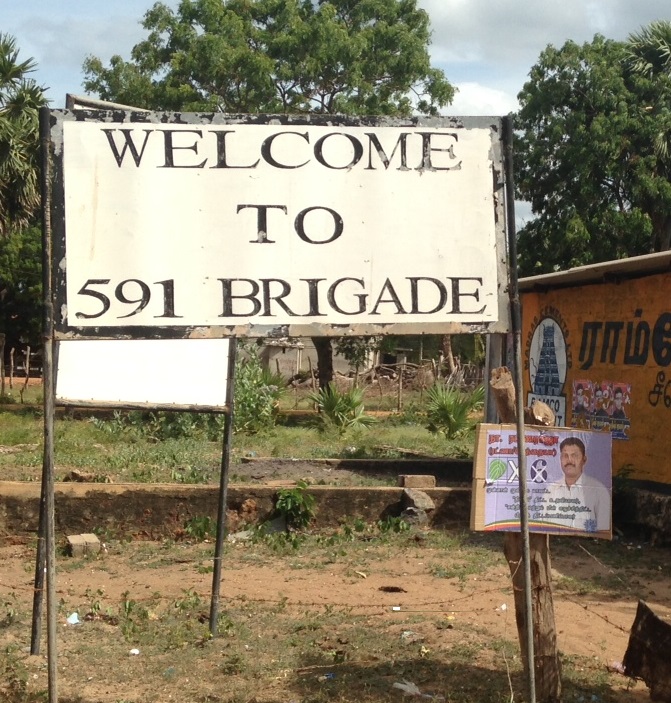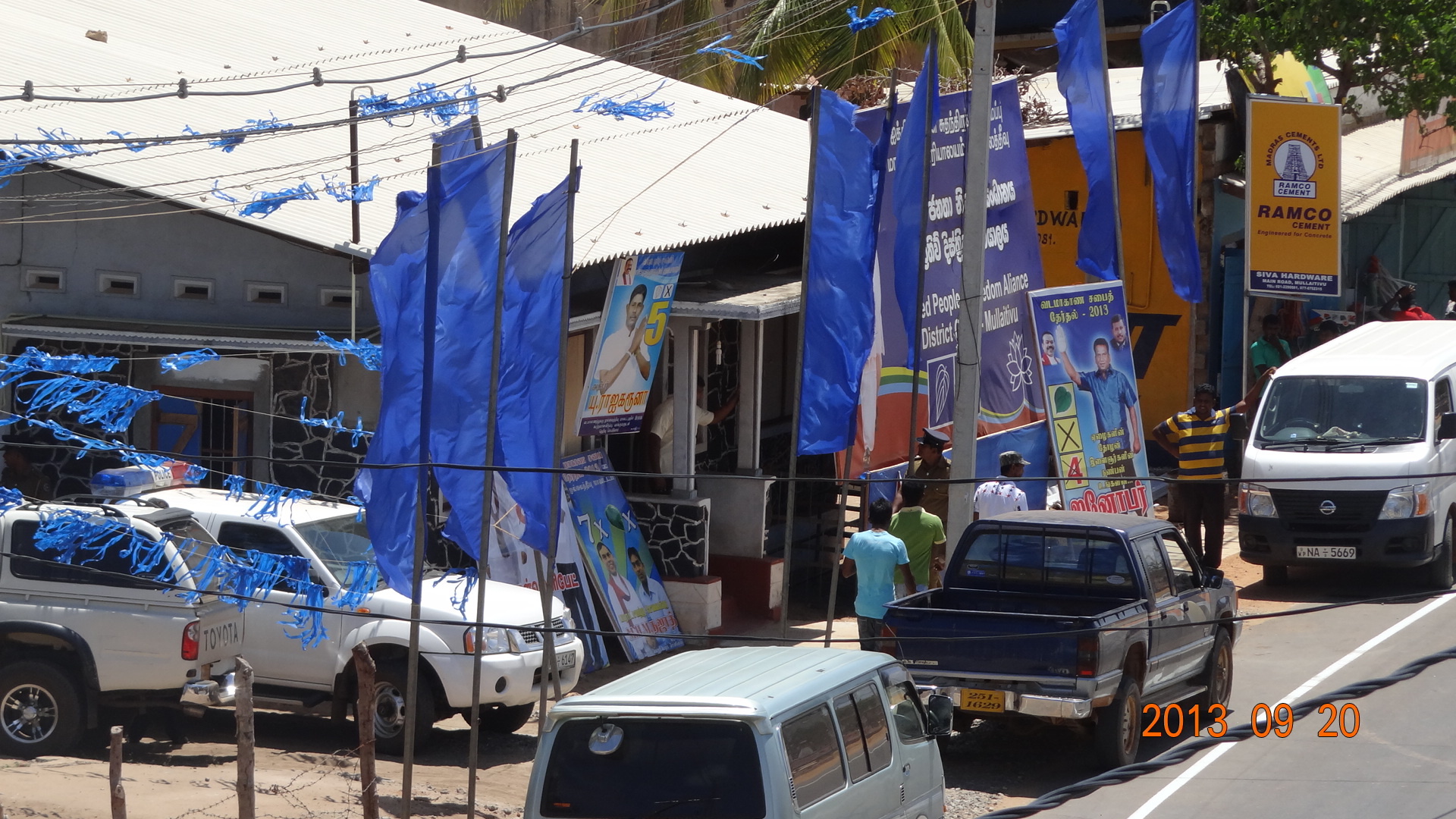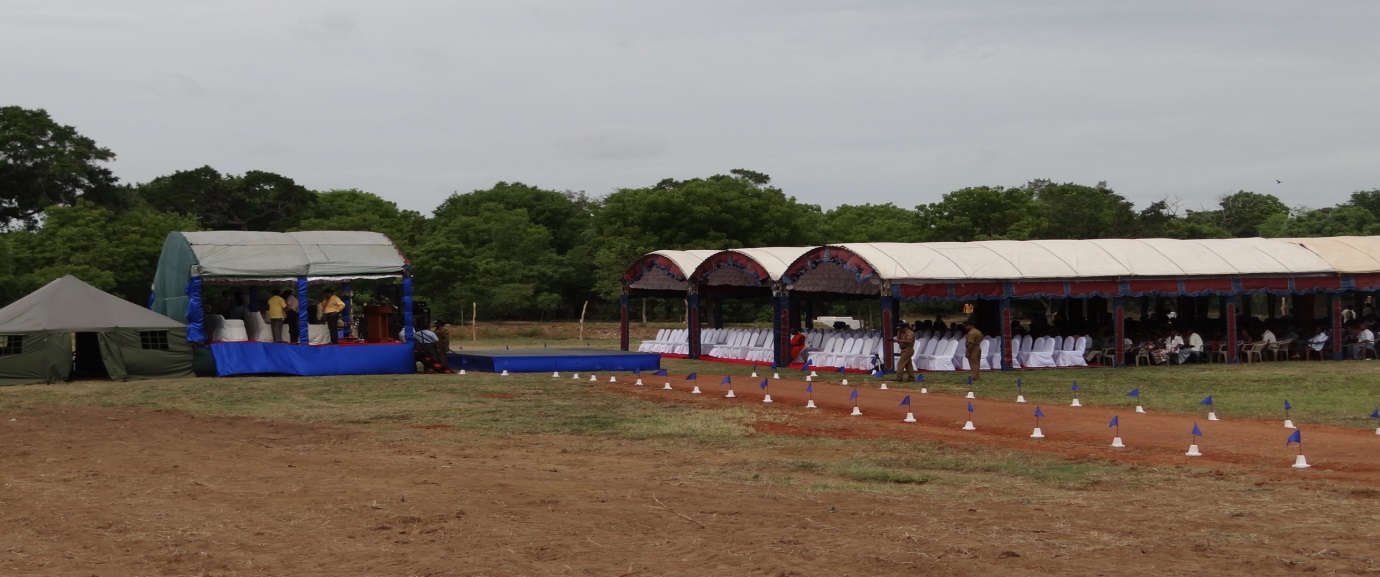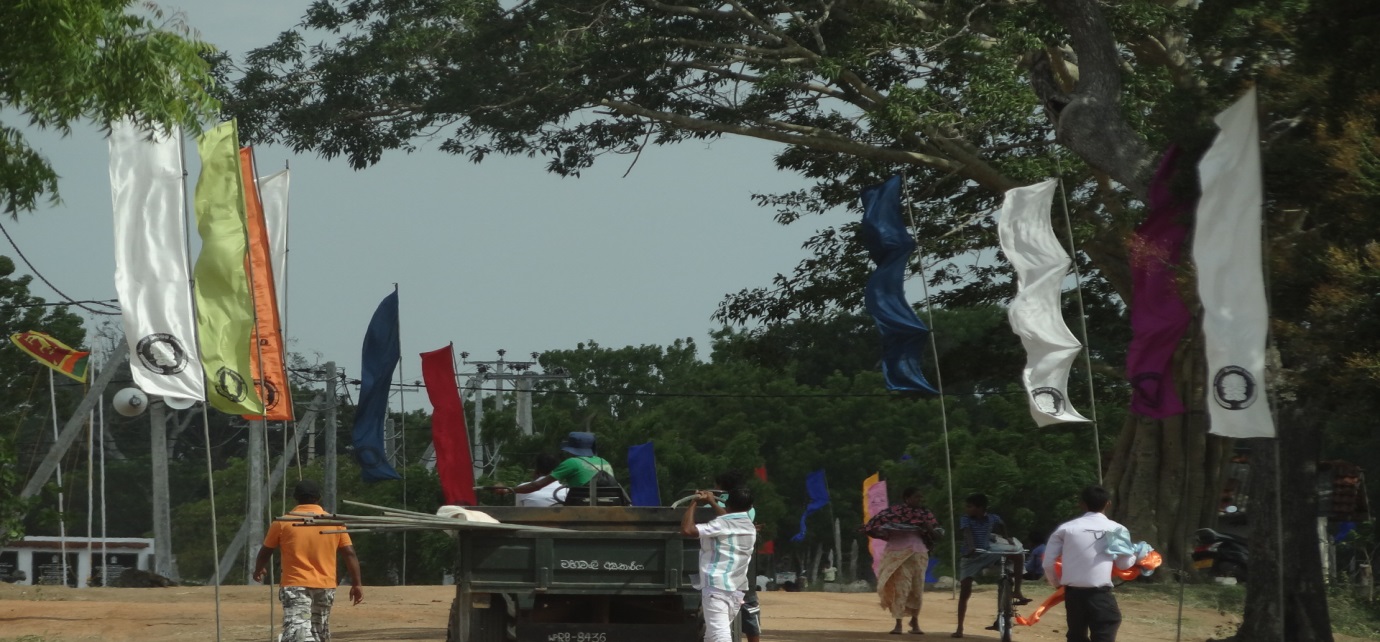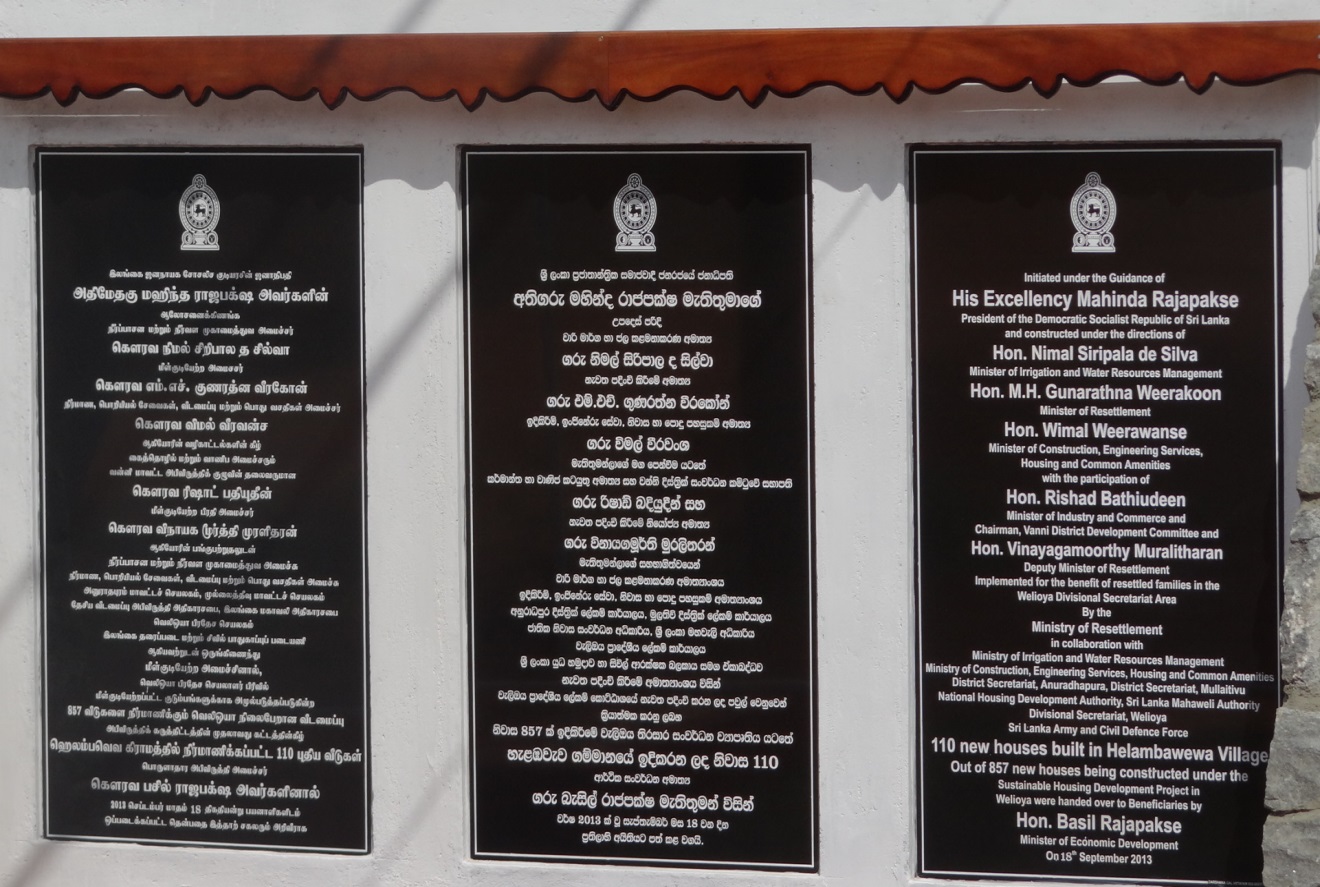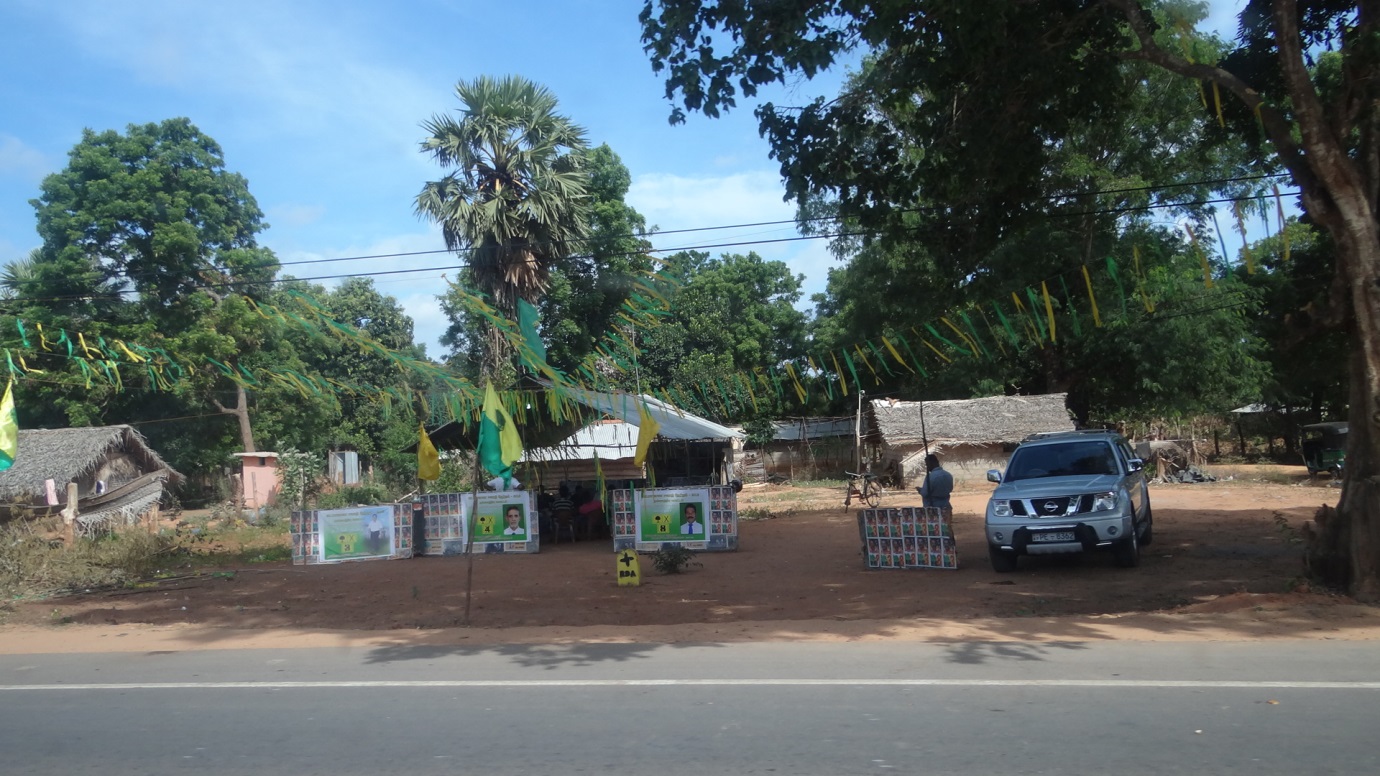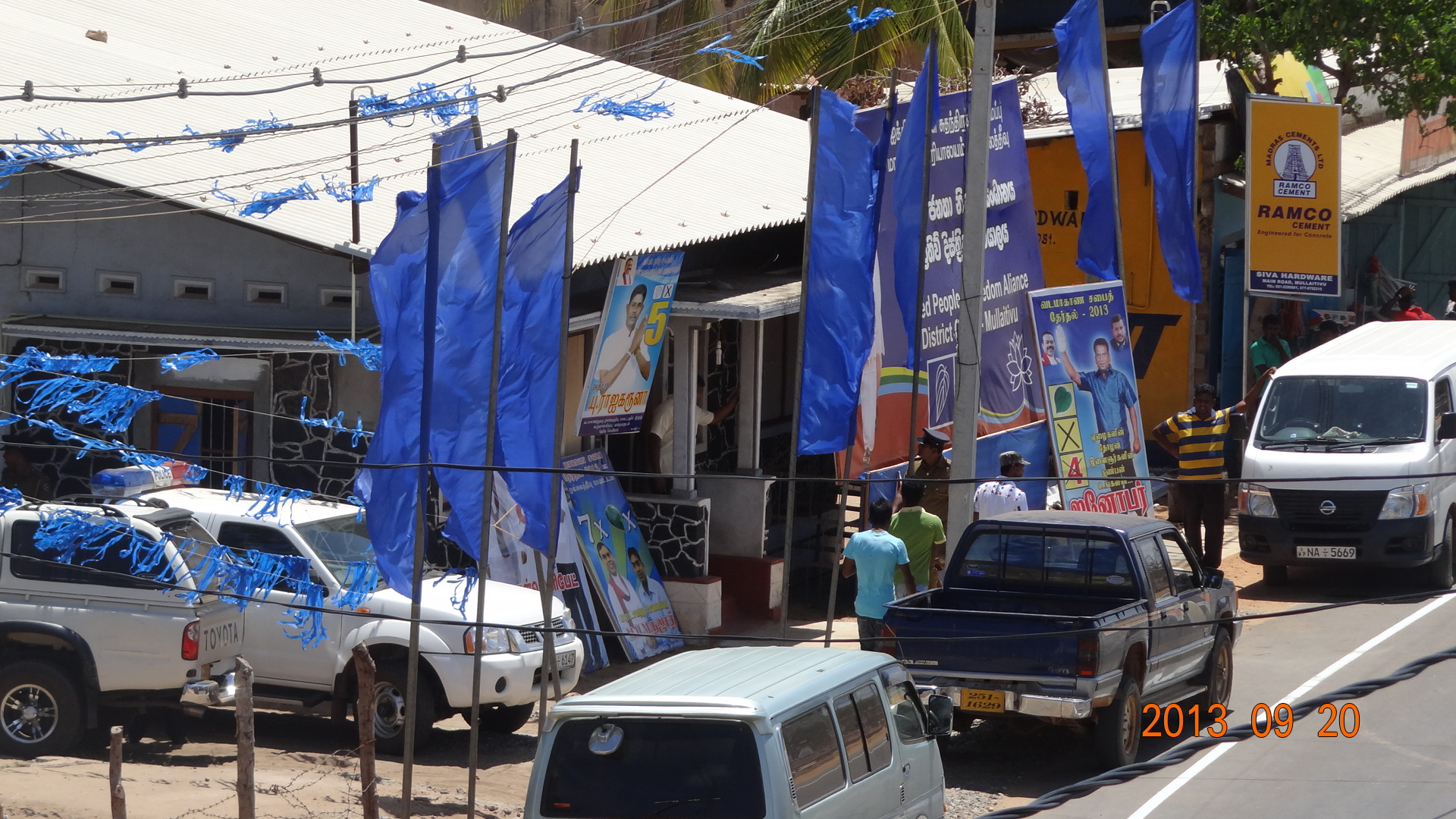 |
| Police vehicle parked at the UPFA office and policeman outside meeting at UPFA office in Mullaitivu |
20th September 2013
Summary:
There is widespread disillusionment with the election process, which may lead to low voter turnout. Unacceptably long distances to polling center’s will deter others, since even where buses are being provided these services will be minimal and are not free.
The Election Commissioner’s Office is doing its best under difficult circumstances but is handicapped by an outdated system in need of reform, compounded by inadequate funds. Yet, the systematic misuse of state resources, notably of the Ministry of Economic Development, to benefit pro-government candidates, and the deliberate violation of election law through combining development activities with election campaigning have irreparably flawed the democratic process in Mullaitivu District. Military interference in the electoral process is mostly indirect, though incidents of coercion to attend meetings of UPFA candidates have been reported.
Description:
- The general view of voters is that this election has no real meaning in the present context because (a) their basic needs of livelihoods, land and freedom from fear and control have not been met, and (b) the Northern Provincial Council will have no autonomy, with “the Chief Minister serving as a messenger of the Governor, who in turn is the messenger of the President.”
- A campaign of deliberate disinformation has been carried out by vested interests to convince rural voters that (a) voting against the Government will only result in cessation of all development activities because funds will not be released by the central government, (b) the Government (and military) will be able to find out which party and candidate each person voted for, and there will be serious consequences as a result, and (c) the (Supreme) Court has ruled that the TNA will be disqualified so all votes for them will be worthless. On the positive side, the Election Commissioner’s Office has conducted voter education workshops in each of the 136 villages, and has reassured voters. However, Minister Basil Rajapaksha’s most recent statements that development initiatives will be jeopardised if the TNA wins has further fuelled voters’ fears.
- Transportation to and from polling centres is a serious issue for many voters in the district. At least 3500 voters will have to travel over 5km to reach their respective polling centres. The furthest distance is from Amaithipuram, where voters live 24km away from the Puthvedduvan School where they are expected to cast their ballots. The Elections Commissioner’s Office has arranged for a single bus each for 10 of the worst-affected areas, but voters will have to pay the bus fare. Others may have to walk up to 4km each way in the blazing to participate in a process in which they have little faith.
- The lack of identity cards is a concern for some voters. CMEV has been reliably informed that a significant percentage of the approximately 500 voters in Kuravil in the Pudukudiyirippu DS Division may not have valid IDs. In addition, some recent returnees who have only their Manik Farm identity cards will not be able to vote. Also, since the 2012 list is being used, a significant number of current residents whose names are only on the 2013 list will not be eligible. In Pudukudiriyippu DSD alone it is estimated that around 1000 persons have lost their voting rights as a result.
- The systematic misuse of state resources and direct violation of election law to benefit UPFA candidates are as serious as to mar the electoral process irrevocably. The Ministry of Economic Development is the main culprit. UPFA candidates who are former senior employees of the ministry serving at Deputy Project Director level have access to Ministry vehicles and staff for campaign work. 172 Samurdhi Development Officers were hired in the district in violation of election law, and their role in the current context is clear. In addition, 150 CPRs hired under the Re-Awakening Project, it is widely alleged, actively support the UPFA campaign at the village level.
- A blatant example of such abuse is the handing over of 110 (or 500, the number varies depending on the government source!) houses by the Hon Minister of Economic Development to residents of Helambawewa on 18 Sept 2013. While the Mahaweli Authority, the NHDA and other government departments were involved, and the event itself was staged adjoining the Helambawewa Army Camp with full military (and MI) presence, the stage was decked in blue with blue flags everywhere. Villagers were provided with lunch packets after the meeting which clearly took on political tones and referred explicitly to the NPC elections. CMEV spoke to two separate groups of women going home with their lunch packets, and their common response [in Sinhala] was “We are coming from the Betel Leaf meeting.” One woman added, “They want us to vote for them, and we will, but now we have to walk a long way back home.”
- Military and Police support of UPFA candidates was blatant. In Mullaitivu town the main UPFA candidates’ office is next to the Mullaitivu SP’s Office, and they are allowed to keep large cut outs, posters and banners on the road even after all campaigning has stopped. Police is deployed at UPFA rallies and tamashas, such as the musical show sponsored by UPFA candidate Satheesh Kumar in Pudukudiriyippu on 18 Sep 2013. Other parties too violated the end-of-campaign regulation, for instance the Muslim Congress held a meeting at Mulliyawalai on 19 Sep 2013.
However, the overall picture of the Mullaitivu District is one in which the UPFA candidates are free to violate any and every regulation with impunity. On 19 Sep 2013, CMEV observed UPFA candidate No 6 campaigning in Mullaitivu town itself.
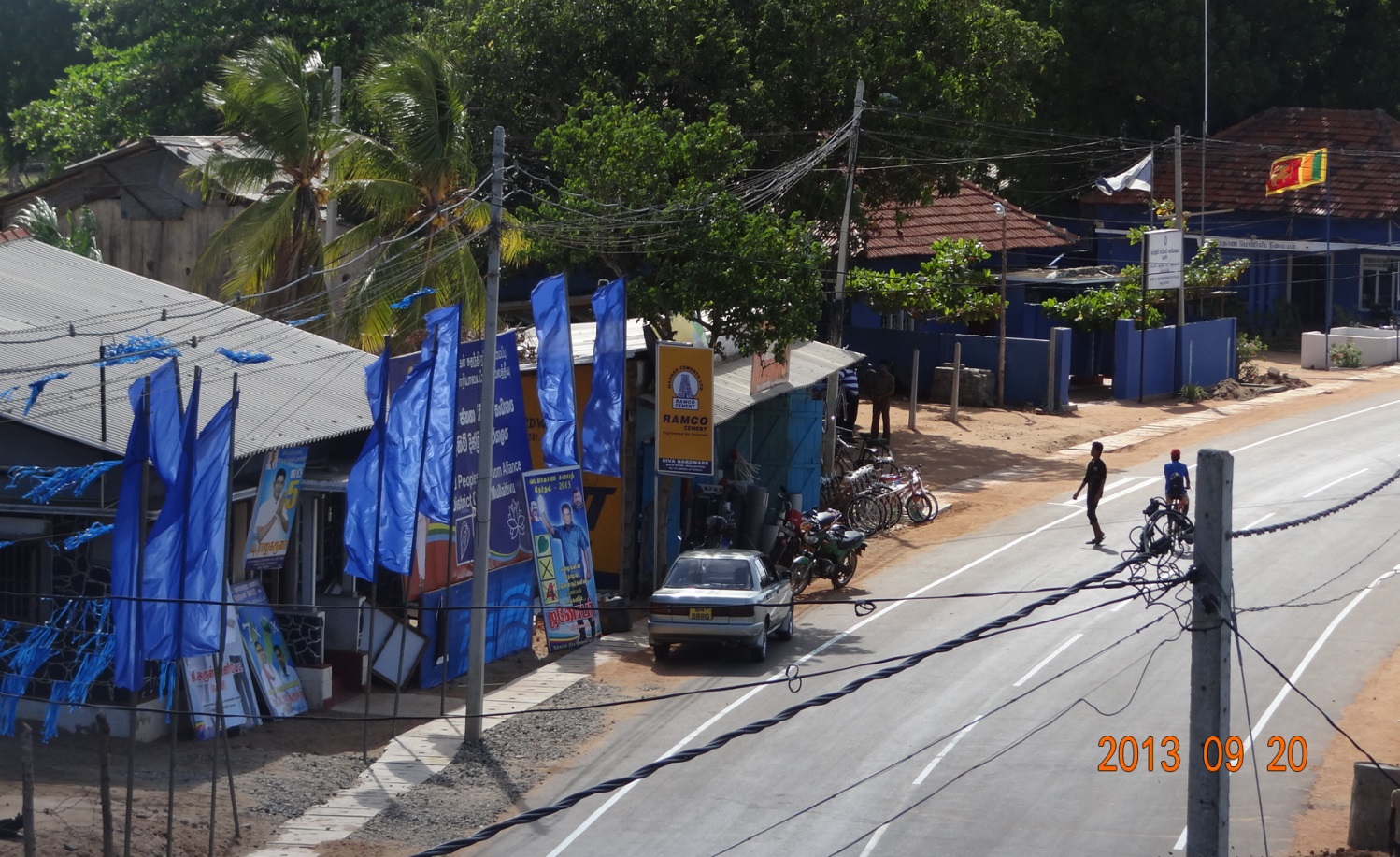
- The military’s involvement is generally less direct, but their control is pervasive. CMEV spoke to a group of women who complained that the Army at Thanneeroottu had asked them to attend a rally organised by UPFA candidate Satheesh Kumar, saying that they will be given loans. Many had gone even by three-wheeler and come away disappointed. Fear of repercussions prevent people from even commenting on the military, but it is agreed that, in relation to the election, the situation is better than in Jaffna.
